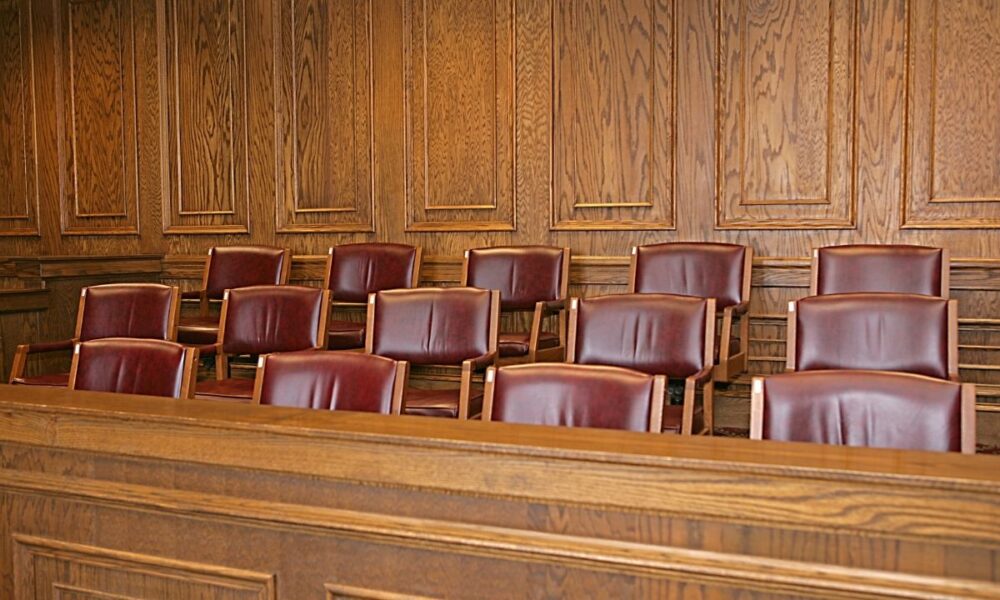A federal judge has refused to unseal grand jury transcripts from the case that led to Ghislaine Maxwell’s sex trafficking indictment, rejecting the Justice Department’s push as based on a “demonstrably false” premise.
U.S. District Judge Paul Engelmayer wrote in a 31-page decision Monday that the public would “learn next to nothing new” from the material and “would come away feeling disappointed and misled.” He said the documents do not name any person beyond Jeffrey Epstein and Maxwell as having sexual contact with minors, nor do they reveal undisclosed locations, methods, or financial details tied to the crimes.
“Insofar as the motion to unseal implies that the grand jury materials are an untapped mine lode of undisclosed information about Epstein or Maxwell or confederates, they definitively are not that,” the Obama appointee wrote. “There is no ‘there’ there.”
Engelmayer also implied that the Justice Department’s request was ridiculous because the court did not believe there were any relevant firsthand accounts supplied to the jury. He wrote, “The grand juries in this case were not used for investigative purposes. They did not hear testimony from any firsthand witness to any event at issue. They did not hear testimony from any victim, eyewitness, suspect, or even a records custodian. The grand juries met instead for the quotidian purpose of returning an indictment.”
The Justice Department had sought to release the transcripts, with redactions, in what it described as a move toward transparency amid renewed public suspicion about the handling of Epstein-related files. But Engelmayer suggested the request could instead be “aimed not at ‘transparency’ but at diversion — aimed not at full disclosure but at the illusion of such.”
Federal prosecutors previously acknowledged that only an FBI agent and a NYPD detective testified before the grand jury in 2020 and 2021. Much of what they covered had already been revealed during Maxwell’s 2021 trial, in civil lawsuits, or in public statements, prosecutors said.
Florida lawyer Brad Edwards, who represents nearly two dozen Epstein accusers, reportedly said he did not disagree with the ruling and that most victims wanted to protect their privacy. “The grand jury materials contain very little in the way of evidentiary value anyway,” he said, per PBS.
The decision comes as the Justice Department faces criticism from President Donald Trump’s supporters, who have pressed for the release of what they believe to be undisclosed Epstein information. In early July, a DOJ-FBI memo concluded that “no further disclosure” was warranted, but later DOJ lawyers asked courts to unseal certain records following public backlash.
Engelmayer faulted the DOJ for leaving Maxwell’s trial prosecutors out of the unsealing process, instead relying on Deputy Attorney General Todd Blanche, who recently interviewed Maxwell and signed the motion. The judge also noted the department had fired Maurene Comey, one of the last remaining prosecutors on the case, just days before filing the request.
Engelmayer’s ruling was similar to that of other federal judges handling this case.
Another federal judge in Florida last month denied a similar request to unseal Epstein-related grand jury material from a separate investigation in 2005 and 2007, and a judge in Manhattan is weighing another pending bid.
Maxwell, who is appealing her 20-year sentence, reportedly opposed the release.
Maxwell was moved last month from a Florida prison to a lower-security facility in Texas after a two-day interview with the Justice Department.
Epstein died in 2019 in what authorities ruled a suicide while awaiting trial on sex trafficking charges involving girls as young as 14. Attorney General Pam Bondi has said that a long-rumored “client list” does not exist and that much of the illicit footage obtained from Epstein’s digital files was of child pornography downloaded from the internet.


